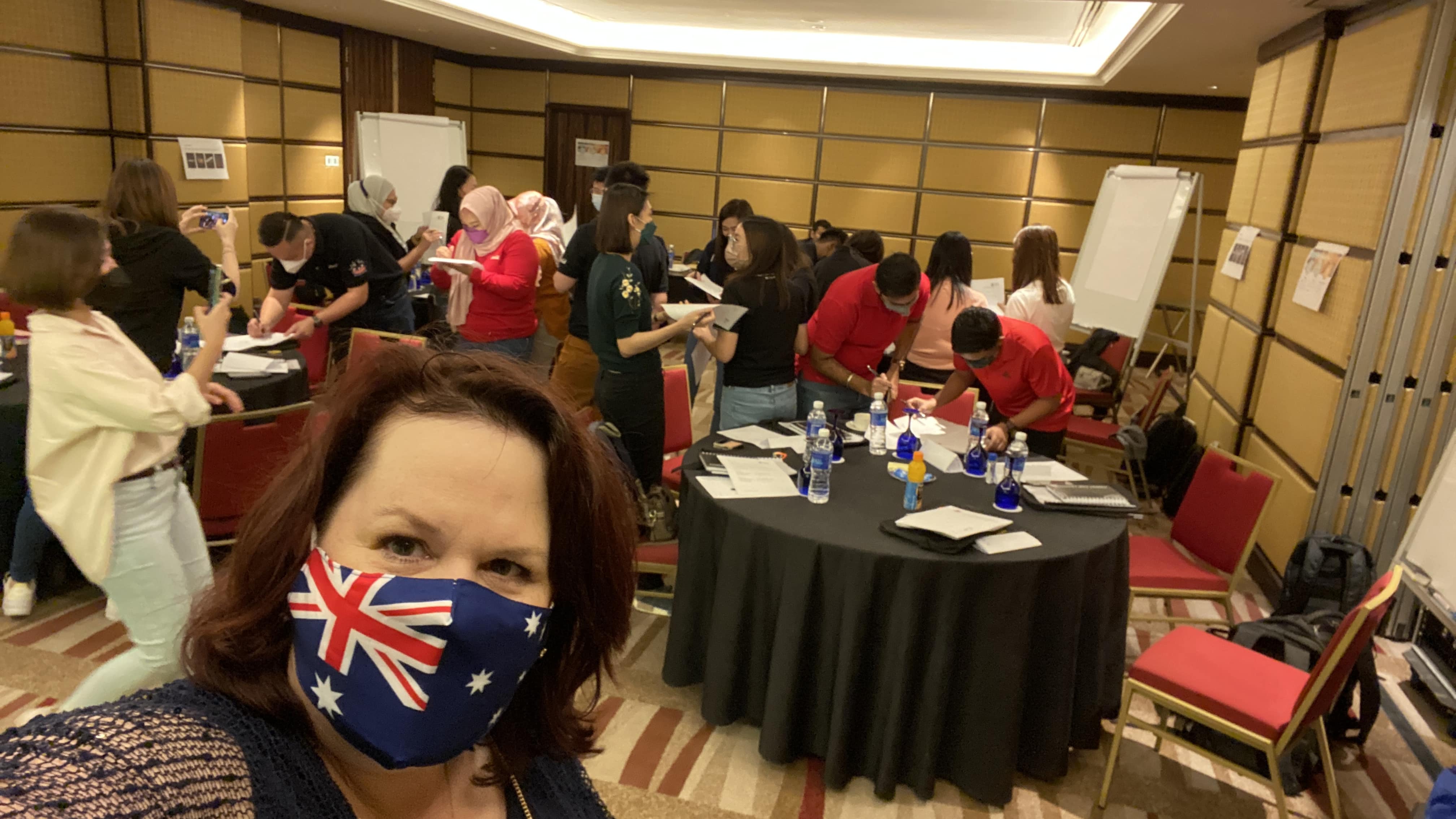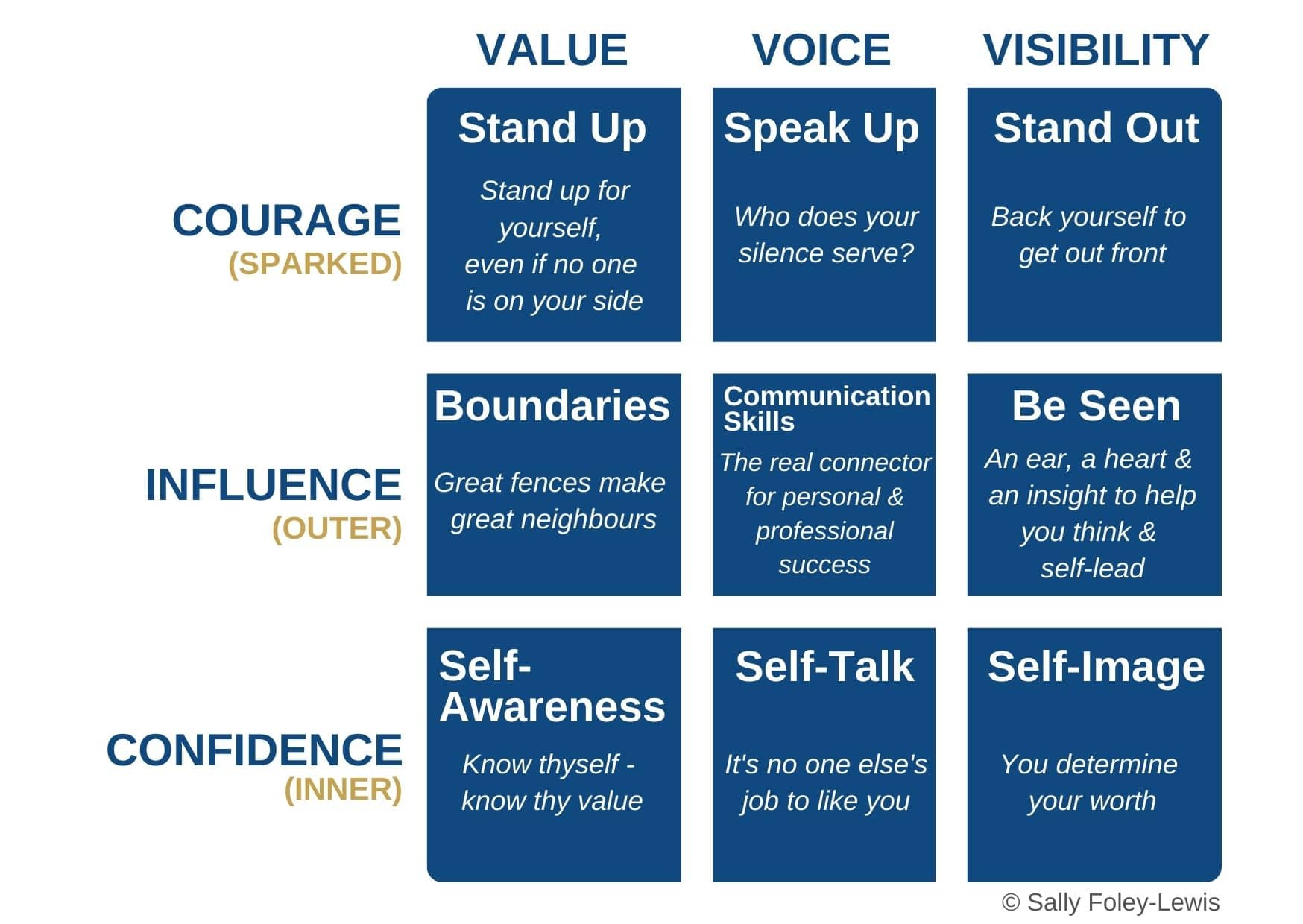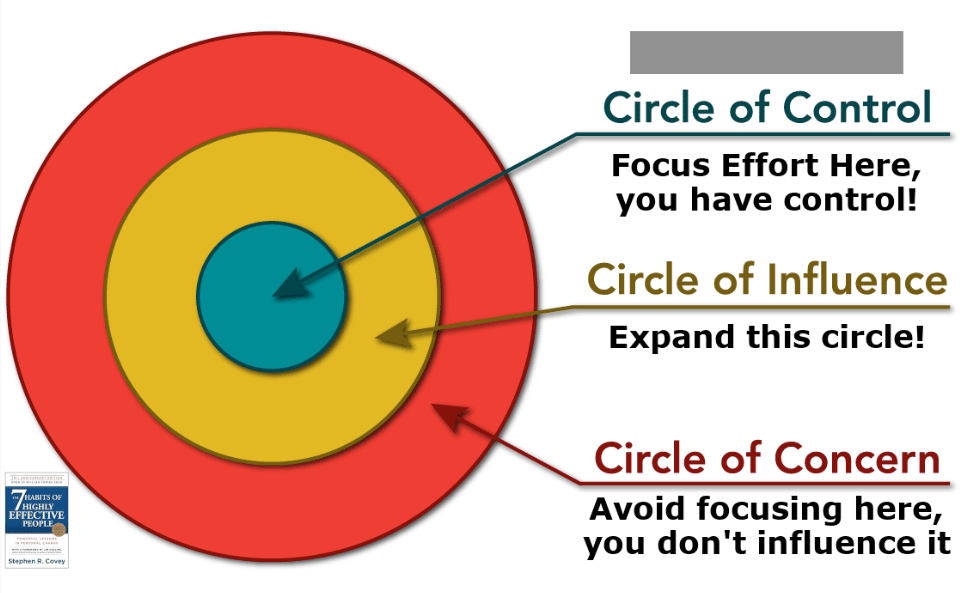Last week I was in Malaysia delivering two workshops to kick off two- 3-month self-leadership programs. We had a blast!

Being a program that focuses fully on self-leadership it was great to hear stories, insights and discussions where these middle managers could see how they had responsibility for their own actions, their own self-awareness, their own development.
There were some interesting moments where some shifted away from themselves to others, for example, I was asked:
“How do I get rid of deadwood?”
“Why does my manager do XYZ?”
“Why won’t my manager do / say / approve ABC?”
Great questions, and good to observe and hear these leaders thinking about their world and world view; and it’s easy to skip from a focus on self to a focus on those directly associated with you and who impact your work.
As you know self-leadership starts with the inner work which can improve confidence which then has a direct positive impact on outer actions and behaviours where influence is more obvious.

As you work on self-awareness, self-talk and self-image, this equips you to also understand others better. The challenge I put to these middle managers questions were:
Think about what is driving the behaviours of the people who are ‘deadwood’ or the manager:
- what’s their motivators?
- where is their pressure coming from?
- what’s their ‘urgent’ and ‘important’?
We also discussed:
Are you expecting them to stop doing what they are there to do, for example, they are employed to help you be productive; to help the company make money. To then expect them to not do this will only lead to frustration, for everyone! The way they go about doing this is probably the real question!
By clearly understanding your drivers, motivators, and expected deliverables you can also then appreciate others also have drivers, motivators and expected deliverables. The key is to remember:
Them: not everyone is motivated by the same things that motivate you. For example, during the workshop, money was on the list but not everyone had money as their number one motivator.
You: (As in someone else): Empathy and understanding are two great positions to hold when dealing with others. Remember the wise quote:
“You don’t know what others are going through so be kind.”
Me: (As in you, ): Self-leadership is an ongoing journey, every time you are confronted with a situation start with asking yourself, “what part did I have to play here?” This is not about taking responsibility for other peoples poor behaviour however it is worth some reflection and checking if and / or what you may have (inadvertently) triggered.
Additionally, it helps to also ask yourself where you have control and where you have influence because there will always be some things you can and some things you cannot control. For example, you CANNOT control HOW your manager speaks to you but you might be able to influence it AND you CAN control how you respond to it. In other words, you could look at these situations through the circles of control, influence and concern, as Stephen Covey expresses it.

What do you think of these approaches to these types of situations?




